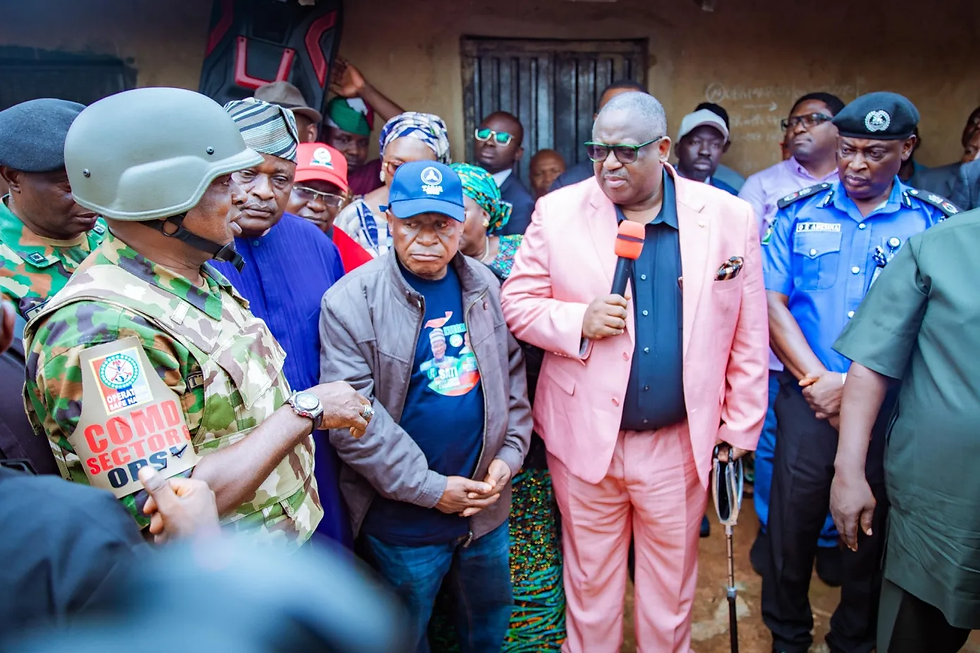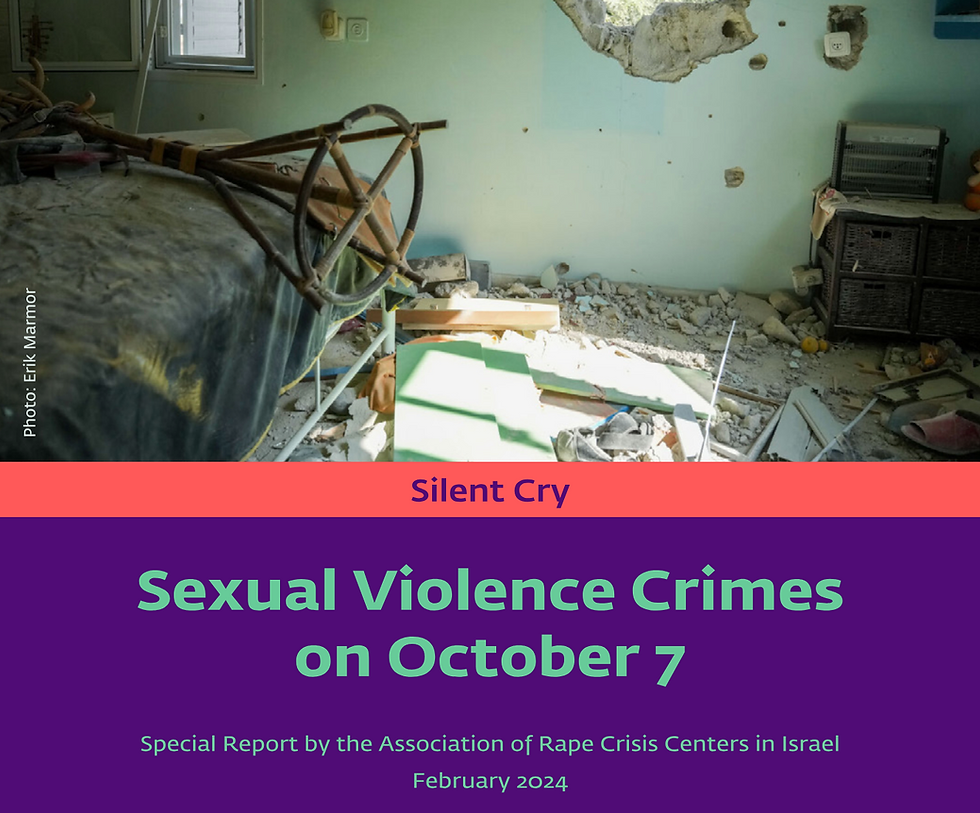Nigerian Governor Sides with Citizens Against Terror
- TruthNigeria

- Jul 17, 2025
- 5 min read

Nigerian Diaspora Leader in U.S. Condemns Terror Spike in Plateau
By Masara Kim
On a damp Wednesday afternoon, July 16, Governor Caleb Mutfwang extended his hands to comfort survivors of a brutal attack the previous night that claimed 27 lives near Jos.
Amid grieving elderly women and children holding placards with messages like “soldiers are killing us” and “we have the right to live,” Gov. Mutfwang made a resolute declaration: “This is terrorism; this is genocide, plain and simple.” This stance challenges the prevailing narrative from both the media and some politicians, including President Bola Tinubu who claim the attacks in Plateau State are clashes between sedentary farmers and semi-nomadic cattle herders. Yet, Mr. Mutfwang remains unyielding. “This is not a case of farmer-herder conflict,” the Governor asserted.
For more than two decades, thousands have been killed in terror attacks concentrated in Nigeria’s rural farming communities. The attacks have often been attributed to militants identifying as members of the Fulani ethnicity. The Fulani, a predominantly Muslim ethnic group, number more than 20 million in West Africa, with approximately 10 million in Nigeria. Whereas Fulani members are involved in diverse professions, including politics, education, and traditional cattle herding, they are historically recognized for staging early jihad wars in West Africa.
In recent years, militants identifying as Fulani have been accused of killing six times more Christians than Boko Haram, according to the Observatory for Religious Freedom in Africa (ORFA). The report indicates that between October 2019 and September 2023, Fulani militants and their allies killed far more civilians than Boko Haran and ISWAP combined. So-called Fulani bandits reportedly murdered 12,039 civilians, and Fulani herdsmen killed 11,948 people. In contrast, Boko Haram and ISWAP caused 3,079 civilian deaths during the same period.
According to Intersociety, an international nonprofit monitoring genocide, Fulani militants have killed 15,640 Nigerian Christians in the past two years of President Bola Tinubu’s administration alone. This translates to an average of 7,820 Christian deaths annually, 650 monthly, and 22 daily. The highest casualties have been recorded in Benue and Plateau States, considered the largest Christian states in northern Nigeria.
During the recent July 15 attack in Plateau State, a local pastor, who lost nine family members, recounted hearing the Fulani-speaking terrorists celebrate with shouts of ‘Allahu Akbar,’ declaring in the Hausa dialect, “We have conquered the infidels.” After burning nine of his family members, the terrorists destroyed dozens of Bibles, hymn books, chairs, and musical instruments in his library and church, all while he braced behind the door of a detached room within his compound where he kept his livestock.
TruthNigeria has reported how an estimated 100-150 Fulani-speaking terrorists swarmed the Christian village of Bindi, 25 miles southwest of Jos, the capital of Plateau State, at minutes after 3:00 a.m. on July 15. Within minutes, at least 27 lives were lost.

Among the dead were at least five young children, aged three months, three, five, and seven years old, with the majority burned alive in their beds. During the two-hour raid, civilian defenders attempted to confront the invaders on the village’s outskirts. This occurred despite the presence of Operation Safe Haven soldiers, a joint military task force, located just two miles away. According to locals interviewed by TruthNigeria, the military refused to respond to distress calls.
However, the home guard volunteers using homemade single-shot pipe guns were no match for the terrorists’ armed with assault rifles, according to their leader, Mr. Dung Gyang. “They attacked from four different fronts, and we had no choice but to withdraw,” Gyang told TruthNigeria.
This latest incident illustrates a pattern of attacks where Fulani terrorists specifically target Christians and churches, subsequently transforming captured communities into Muslim “no-go zones” and staging grounds for further assaults. Yet, the media and politicians, including those in the United States, consistently frame these events as “clashes between sedentary farmers and semi-nomadic cattle herdsmen.”
This mischaracterization deeply frustrates Governor Mutfwang and thousands of desperate citizens scrambling to defend themselves without access to their own media platforms.
“I assure you; we will escalate this matter to the highest levels,” Governor Mutfwang declared. “We will deploy every resource at our disposal to end this genocide,” he added, questioning the military’s role.
“How can people come and attack people and kill them in their homes, and we say they are not known?” Mutfwang queried. “We cannot continue like this. These attackers are not spirits. Real people carried out these atrocities and vanished without a trace,” he said, speaking directly to the task force commander in Riyom. “You were here, you saw them, your people engaged them, but none of them was injured, none of them was arrested, does that speak well of the operation?”
“Sadly, we got intelligence for this attack, yet the attack still happened,” Mutfwang said. “You are not here on a peacekeeping mission, said Mutfwang, a former human rights attorney, to the task force officials.
“You are deployed to protect the lives and property of Nigerians. Anyone threatening these lives is an enemy of the state and must be treated accordingly,” the governor went on to say. Mutfwang also commended local civilian defense efforts.
“I thank our young people across these areas for their courage in defending their communities. We see you, we appreciate you, and we will continue to support you morally and otherwise to ensure that no one drives you from your ancestral lands,” he promised.
The situation in Plateau State is part of a broader pattern of violence across Nigeria’s Middle Belt region, where citizens often feel abandoned by local authorities. The deterioration in Plateau State law enforcement was denounced by a former resident of Plateau who built a successful medical career in the United States.
Dr. Nash Pwol, head of the Middle Belt Association in the United States, told TruthNigeria he witnessed a different reality before relocating more than 40 years ago.
“The law enforcements were not so many, but the slightest thing that happened, the response was swift,” Nash told TruthNigeria. “But in this instance where human life is lost, and the law enforcement is called to it, and nothing is done, are we allowing our society to go into mayhem or total chaos?” Nash asked in a text to TruthNigeria.
“This is the type of situation that makes people take the law into their hands,” he said in a phone call, drawing a parallel with the government protection afforded to animals in his community in the United States.
“It is really difficult to understand it, especially when you live in a society where even animals are given such respect. It baffles me that in a society you grew up that used to do nearly the same thing, especially respect human lives, that has been totally lost,” he said, concluding, “The purpose of government is to give peace, structure and progress to the people.”
© Newspaper WordPress Theme by TagDiv



